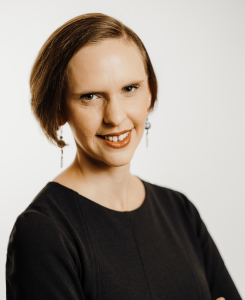Fundraising Volunteer Engagement: Setting Up Your Campaign Committee for Success

By Joanne Curry, Head of Client Success & Principal
Capital and endowment campaigns are special, multi-year fundraising efforts tied to a visionary goal which present a special opportunity to engage your organization’s fundraising volunteers. By serving on your campaign committee, fundraising volunteers can share their affinity to your mission by influencing new contributions and garnering increased gifts. Campaigns and endowment campaigns can be a win-win for organizations and volunteers when participants are equipped to collaborate in the launch, progression, and completion of the campaign goal.
At the same time, development officers and philanthropists may struggle with sustaining motivation and enthusiasm in fundraising volunteers over the course of multi-year campaigns. Here are some suggestions to help your fundraising volunteers enjoy the campaign experience while helping reach the campaign goal:
Seven tips to set your volunteer fundraising committee up for success
1. Recruit with intention. The people on your campaign committee must work well together, be able to influence the campaign outcome, and represent diversity in as many forms as possible. Start by recruiting the campaign chair(s) and focus on your most invested and well-connected donors to join your campaign committee. Take time to meet with each person individually to share the campaign goals and a description of their roles and responsibilities.
- Read CFA’s Guide to an Effective Campaign Committee for more information on committee structure and volunteer responsibilities.
2. Provide clarity. Even the most experienced fundraising volunteers want to work toward a shared vision and align on a plan of how to achieve it. When people volunteer, they need specific tasks and clear expectations. Review your campaign plan at the first committee meeting. If you are conducting a multi-year campaign, ensure that the plan and timeline is discussed on an annual basis with all of your volunteer committee members.
Volunteers also need to understand the “why” behind the tasks you assign. For example, if you ask a volunteer to call on a colleague for a large gift, explain how the gift will help reach the campaign vision, how you came up with the solicitation amount, and why you think they are the best volunteer to help make the ask. If donor cultivation is the aim, ask one of your volunteers to set up a meeting with the prospect and explain how that will help to move the relationship forward.
- Consultant Tip: It is important to actively manage and update your donor data. Use the data you collect to keep your campaign volunteers focused on viable prospects.
3. Practice and prepare for fundraising. Volunteers may not be comfortable asking for money or cultivating donors. Demystify this task by providing fundraising training for your committee members early in the campaign. Equip your volunteers with the tools to succeed by sharing your case for support and a link to your campaign video (if applicable) and walking through these resources together in advance. To prepare a volunteer for conducting an ask meeting without a development staff partner, I recommend providing them with a personalized cover letter that details the amount of the financial request. However, in most cases, I counsel clients to have a staff member present to ensure all relevant details are conveyed.
- Consultant Tip: At campaign committee meetings, add a storytelling exercise to the agenda. I always enjoy hearing the personal stories of committee members about how they became involved in the organization or why the organization’s mission is meaningful to them. Discuss how sharing these personal experiences with campaign prospects could be fruitful.
4. Keep it simple. If you have a committee of 20 volunteers, avoid giving each member 20 tasks. Don’t expect volunteers to cull through long lists of prospects who may or may not be aligned with your mission and vision. Instead, aim for quality prospects over quantity of asks. I have found that assigning each volunteer one or two prospects at a time is ideal. Keeping people focused on a small number of set targets can help make fundraising volunteers feel accomplished.
- Consultant Tip: The best tactic for assigning roles is to identify a task that you can’t accomplish without volunteer help, or a task that is better accomplished by a volunteer. For example, if a volunteer knows the prospect because they serve on a board together, the meeting request is more likely to get a response when the volunteer, as opposed to the CEO or someone else on the staff, asks.
5. Track and meet in person. The purpose of committee meetings is to convene and share progress so that volunteers can hear from–and brainstorm with–each other. The peer accountability that occurs during in-person meetings can motivate and inspire action from your volunteers, while also allowing you to record what each committee member promises to do for the campaign. At CFA, we recommend using moves management to record interactions and plan next steps with campaign prospects.
- Consultant Tip: Cultivating major gifts is a long-term effort. Convene your campaign committee every other month to give volunteers ample time to demonstrate progress.
6. Hold volunteers accountable. Knowing when a volunteer expects to accomplish a task is essential to reaching campaign goals on schedule. This can be the toughest part of volunteer engagement! Establish a timeline as part of your campaign plan. Staff members and/or campaign chairs can follow up with volunteers individually between meetings. If it is obvious that a campaign volunteer is not likely to complete their tasks, work with campaign leadership to rethink the strategy for that volunteer’s assignments.
7. Keep volunteers motivated. Thank volunteers as often as you can and keep them informed of campaign progress. Celebrate wins along the way and recognize how a volunteer’s action translated into a contribution or a positive move for a future gift.
Capital and endowment campaigns can be a transformative time in the life of your organization when they are executed well and when your volunteer fundraisers feel ownership and success in reaching goals alongside development professionals and other staff leaders. Contact CFA today to find out how we can set you and your fundraising volunteers up for campaign success.

Joanne Curry, Head of Client Success & Principal
Joanne Curry is CFA’s Head of Client Success & Principal, focusing on campaign management, prospect development, and membership and annual giving programs. Joanne came to CFA with over 10 years of nonprofit experience in operations management, development, and accounting. Before joining CFA, Joanne served as Head of Revenue and Interim Head of Development at the McNay Art Museum in San Antonio, Texas, managed fundraising operations and communications with Missouri Contemporary Ballet and Owen/Cox Dance Group and worked with nonprofits as a Certified QuickBooks ProAdvisor Accountant with Support Kansas City. A native of Port Jefferson, New York, Joanne holds a BFA in Ballet Performance and Teaching from the University of Utah.
